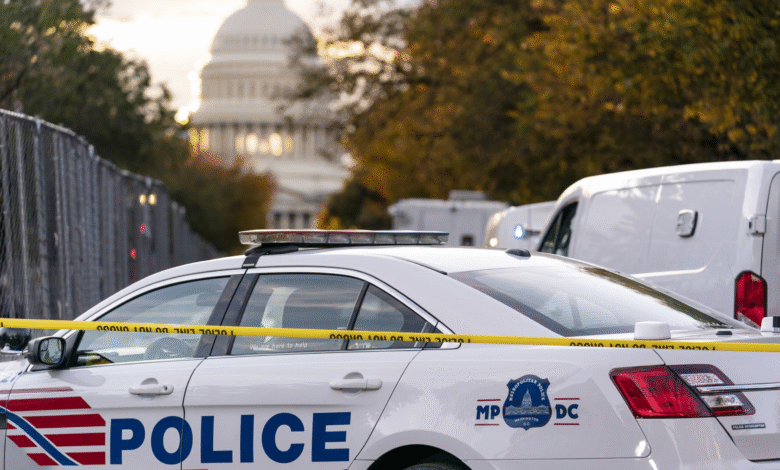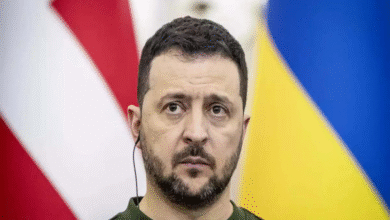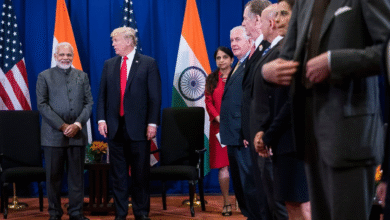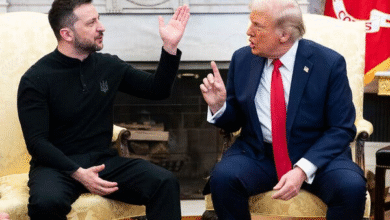D.C. Police Control: Bondi Retraction Saves Police Chief

In the heart of the nation’s capital, D.C. police control has become a topic of intense debate and scrutiny. Following a significant directive from the Trump administration, the Metropolitan Police Department found itself at a crossroads, where local authority clashed with federal oversight. The recent retraction of the Bondi order, which aimed to transfer control from Chief Pamela Smith to a federal designee, highlighted the tenuous balance of power in Washington, D.C. As tensions mounted, the implications for emerging issues such as immigration enforcement D.C. and the city’s status as a sanctuary city came under the spotlight. This complex situation not only raises questions about law enforcement autonomy but also the implications of federal intervention in local governance.
The governance of the Metropolitan Police Department in Washington, D.C., is now a focal point of discussion as local officials grapple with the ramifications of federal directives on law enforcement. With the Trump administration’s plans to exert control over the D.C. police being challenged, the balance of authority between city leaders and federal law enforcement agencies has become increasingly contentious. This situation serves as a critical examination of the implications for civil safety, community trust, and the legal boundaries surrounding police governance. As the political landscape shifts, themes surrounding law enforcement oversight and the controversial nature of immigration enforcement D.C. continue to resonate within the broader context of the city’s identity as a sanctuary city. The interplay of these dynamics reflects the complexities and challenges faced by leaders in maintaining control over policing while navigating federal expectations.
Reversal of the Bondi Order: Implications for D.C. Police Control
The recent retraction of the original Bondi order has significant implications for police control in Washington, D.C. Initially, the order intended to strip Metropolitan Police Department Chief Pamela Smith of her authority, placing the D.C. police under direct federal control. However, following a lawsuit led by D.C. Attorney General Brian Schwalb, the Department of Justice has reverted this decision, allowing Chief Smith to maintain her leadership role. This development is a crucial victory for local governance, as it secures the chief’s ability to manage law enforcement operations without undue federal interference.
The reversal establishes a new directive that seems to maintain the balance of power between local and federal jurisdictions. By classifying Drug Enforcement Administration Chief Terry Cole as Bondi’s ‘designee’ rather than the emergency police chief, the District reaffirms its autonomy over policing matters. As a consequence, the D.C. police can continue their operations under the mayor’s guidance while adhering to the instructions of the new directive related to immigration enforcement. This outcome preserves the local oversight essential for effective community policing.
A significant aspect of this ruling is the immediate impact it can have on D.C.’s status as a ‘sanctuary city.’ With the new directives instructing the Metropolitan Police Department to assist in immigration enforcement, the landscape for D.C.’s approach to undocumented immigrants may shift dramatically. The city had previously enacted policies to protect immigrants from deportation by limiting coordination with federal immigration authorities. Now, the integration of federal expectations into local policing could strain community relations and highlight the ongoing debate around immigration enforcement in major cities.
Moreover, the implications of Bondi’s order can be felt beyond D.C. as local leaders across the nation watch the situation closely. Any modification in local policy concerning immigration enforcement or police control may spark a larger discussion about the autonomy of city governments in the face of federal intervention. In the case of D.C., the legal assertion of authority over the police by both the federal government and local leadership sets a precedent that could influence other jurisdictions considering similar responses to federal directives.
Frequently Asked Questions
What is the impact of the Bondi order retraction on D.C. police control?
The retraction of the Bondi order allows the Chief of the Metropolitan Police Department, Pamela Smith, to retain control of the force, ensuring that local command remains independent of federal oversight. This supports the existing structure of D.C. police management, thereby preserving local law enforcement’s operational integrity.
How does the Trump administration’s recent actions affect the Metropolitan Police Department in D.C.?
The Trump administration’s directive threatened to reassign control of the Metropolitan Police Department, potentially undermining local governance. However, following the Bondi order’s retraction, Chief Pamela Smith now continues to operate under Mayor Muriel Bowser’s leadership, maintaining local authority over policing in the district.
What changes were made to D.C.’s immigration enforcement status?
With the issuance of the new directive by Bondi, D.C. is required to assist in immigration enforcement efforts, effectively revoking its ‘sanctuary city’ status. This change allows federal law enforcement agencies to request data and assistance from the Metropolitan Police Department, altering the previous stance on immigration enforcement.
What are the potential legal consequences of the Bondi order for D.C. police?
The original Bondi order posed significant legal risks by attempting to exert federal authority over D.C. police operations, which local officials challenged in court. The retraction limits the potential for chaos and disruption among the Metropolitan Police Department, ensuring that local laws and procedures are upheld.
How has Mayor Muriel Bowser responded to the federal control of D.C. police?
Mayor Muriel Bowser opposed the Bondi order’s attempts to federalize the Metropolitan Police Department, describing it as excessive. She has emphasized the importance of local governance and the autonomy afforded to D.C. under the Home Rule Act, maintaining that the city’s police operations should be led by local officials.
What are the implications of the Home Rule Act on D.C. police control?
The Home Rule Act grants specific authority to the District of Columbia to manage its own affairs, including police operations. It limits the federal government’s ability to exert control unless Congress permits it, which is significant in maintaining the authority of the Metropolitan Police Department against federal encroachment.
How did the recent court ruling affect the structure of D.C.’s police command?
The recent court ruling, which resulted in the retraction of the Bondi order, upheld the current command structure of the Metropolitan Police Department. This ensures that Chief Pamela Smith continues to lead the department under the supervision of the Mayor, thereby preserving public safety and local law enforcement stability.
What was the rationale behind the Trump administration’s plan to take control of D.C. police?
The Trump administration cited rising crime rates as justification for proposing control over D.C. police; however, local officials, including Mayor Bowser, contested this claim by providing data indicating a significant decline in violent crime. This discrepancy highlights the ongoing tensions between local governance and federal intervention in law enforcement.
What are the community’s concerns regarding immigration enforcement in D.C. following the order?
The community has expressed concerns that reinstated immigration enforcement could lead to fear among residents, particularly undocumented immigrants, impacting their willingness to report crimes or cooperate with police. This situation raises questions about public safety and community trust in law enforcement.
How does the situation reflect the dynamics of home rule in Washington, D.C.?
The ongoing debates surrounding D.C. police control and the Bondi order underscore the delicate balance of home rule in Washington, D.C., where local governance often clashes with federal interests. These tensions highlight the complexities of managing a district that operates under unique political and legal constraints.
| Key Point | Details |
|---|---|
| Reversal of Federal Control | Bondi retracts her order assuming control of D.C. police, restoring authority to Police Chief Pamela Smith. |
| Settlement with DOJ | A settlement allows Chief Smith to retain control over daily operations while taking directives from Mayor Bowser. |
| Enforcement of Immigration Laws | A new directive requires D.C. police to assist in federal immigration enforcement, revoking its ‘sanctuary city’ status. |
| Lawsuit Against Federal Actions | D.C. Attorney General Schwalb filed a lawsuit challenging the federal takeover, claiming it exceeded legal limits. |
| Public Safety Concerns | Schwalb warned that enforcing Bondi’s order would disrupt the police command structure and public safety. |
| Statistical Context | Despite Trump’s claims, data show a significant decline in violent crime in D.C., the lowest in thirty years. |
Summary
D.C. police control has recently become a focal point of contention as the Trump administration initially attempted a hostile takeover by issuing a directive to assume authority over the Metropolitan Police Department. However, this order has since been revoked, allowing Chief Pamela Smith to continue leading the department under Mayor Bowser’s supervision. This ongoing debate highlights the intricacies of local versus federal jurisdiction and the implications for public safety and community trust in law enforcement. The recent developments underscore the vital importance of maintaining D.C. police control by its own elected officials amidst external pressures.




